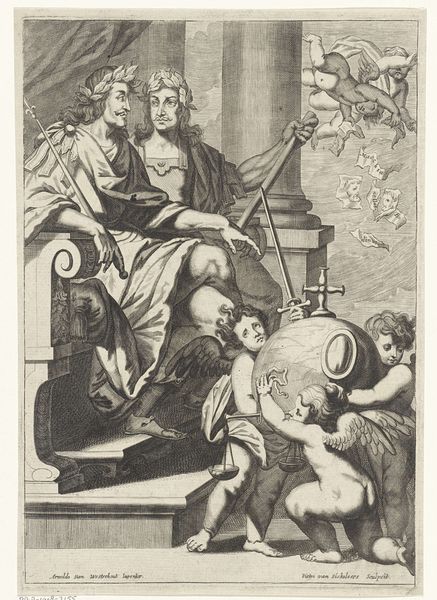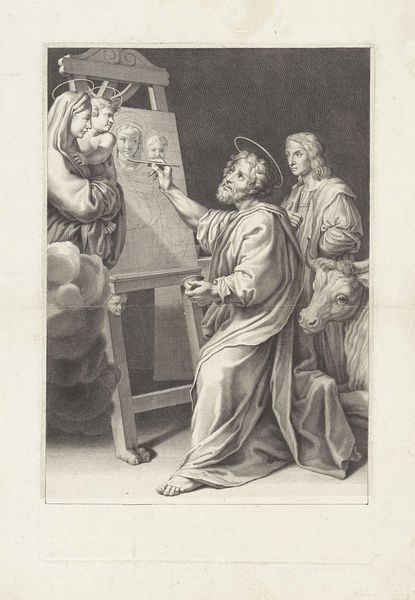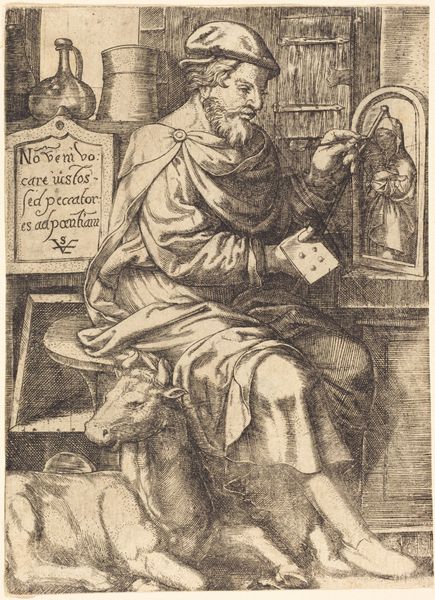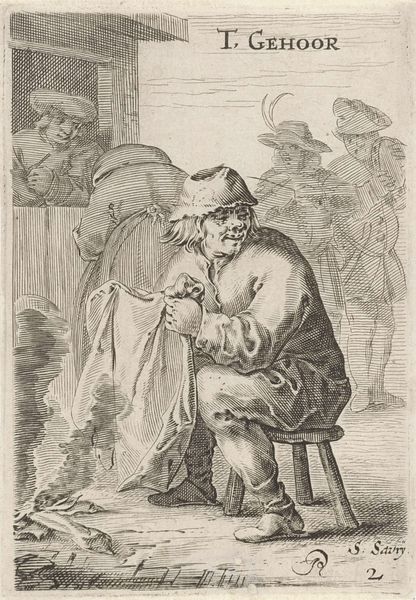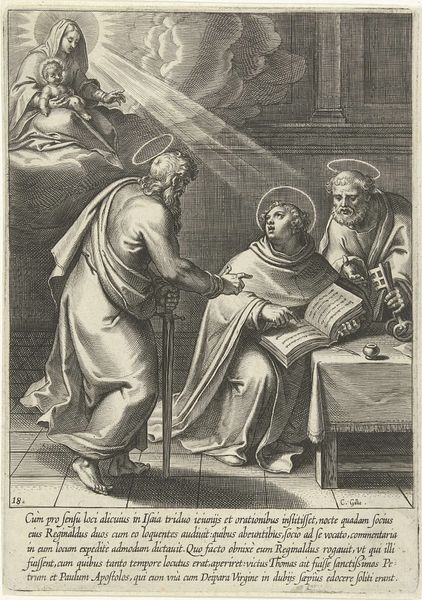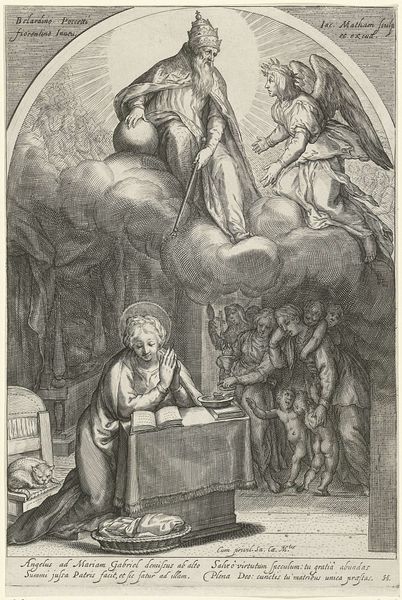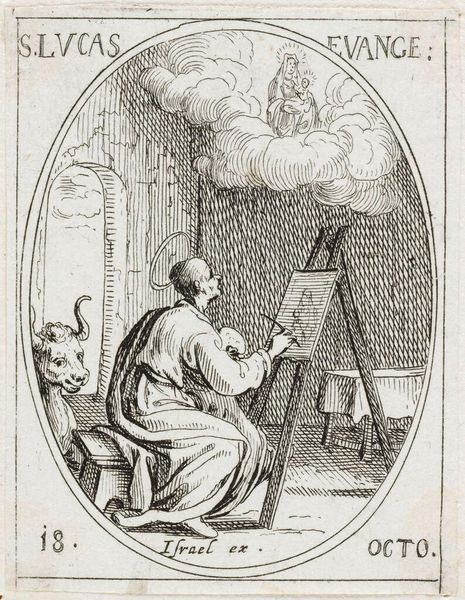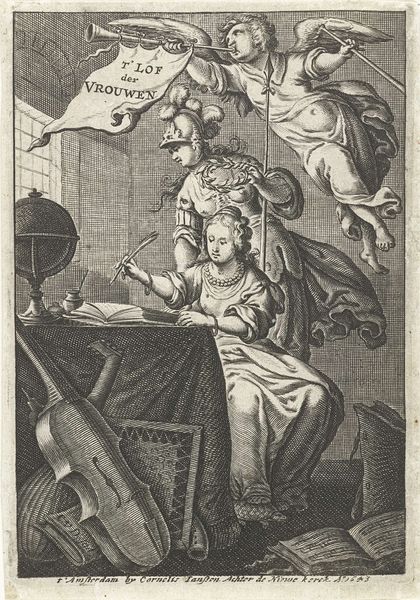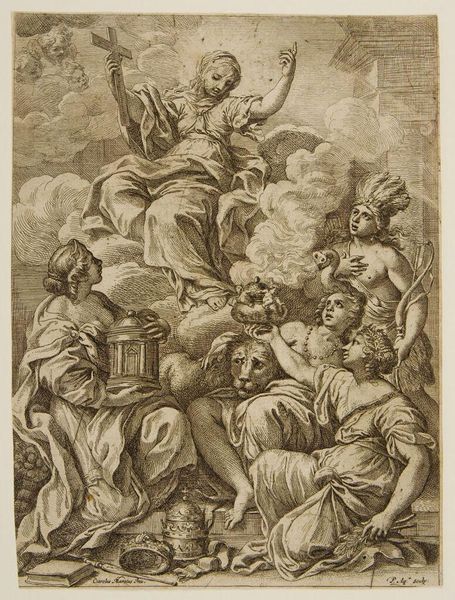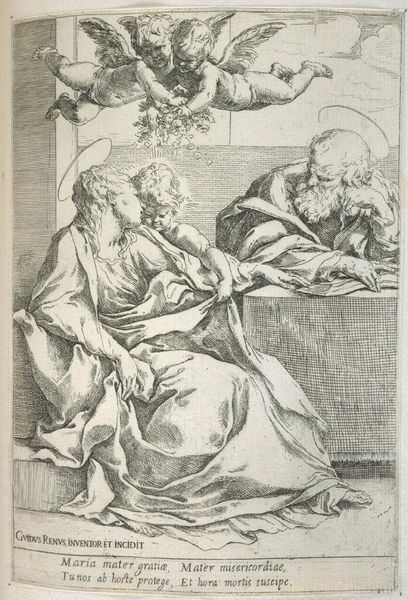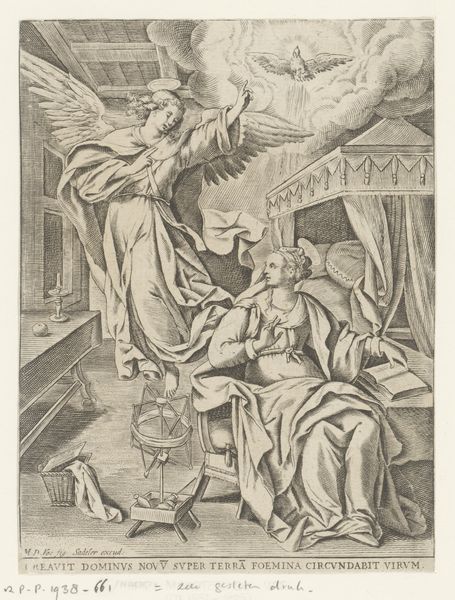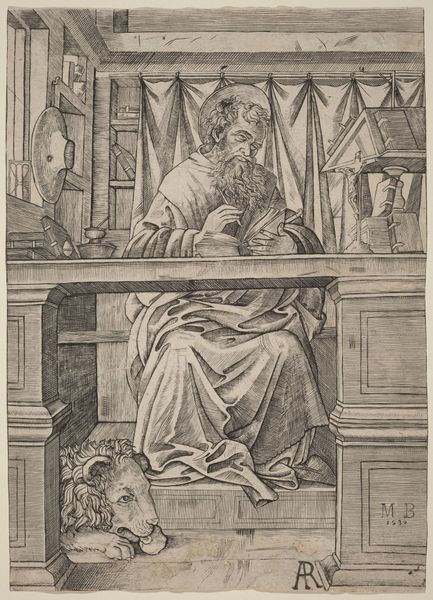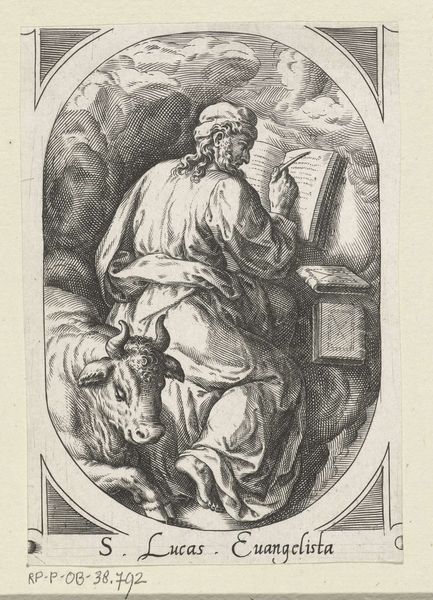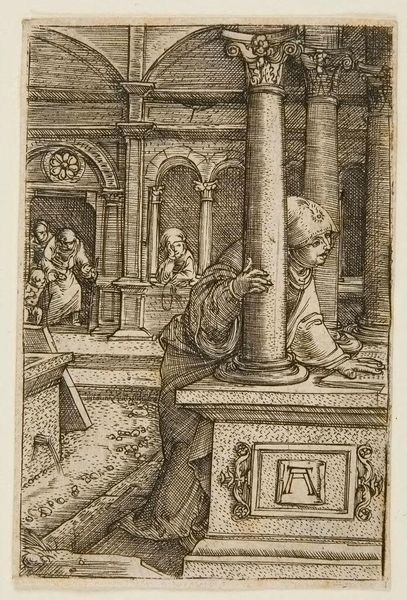
drawing, print, engraving
#
portrait
#
drawing
#
allegory
# print
#
old engraving style
#
caricature
#
figuration
#
11_renaissance
#
history-painting
#
northern-renaissance
#
engraving
Dimensions: height 216 mm, width 180 mm
Copyright: Rijks Museum: Open Domain
Philips Galle created this engraving, Heilige Lucas schildert Maria met kind, in the late 16th or early 17th century. Notice how the composition is structured around a juxtaposition of earthly labor and divine inspiration. The print is visually divided between the grounded scene of Saint Luke in his studio and the ethereal vision of the Virgin and Child. Galle uses contrasting textures to differentiate these realms, with detailed, cross-hatched lines defining the tangible objects in the studio, against the soft, cloud-like forms surrounding the Virgin. This contrast underscores a hierarchy of representation. Here, Saint Luke isn't just depicted as an artist but as a conduit, mediating between divine vision and artistic creation. This interplay between the real and the ideal invites us to consider how art functions as a bridge between the seen and unseen. It's a concept that destabilizes any fixed boundary between the sacred and the profane, suggesting art's unique power to render the spiritual tangible.
Comments
No comments
Be the first to comment and join the conversation on the ultimate creative platform.
